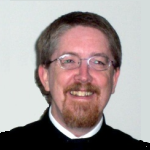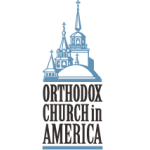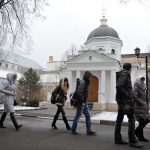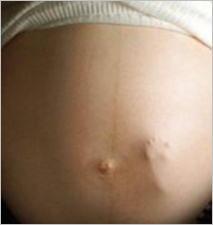Deprecated: trim(): Passing null to parameter #1 ($string) of type string is deprecated in
/home/aoiusa/public_html/wp-content/plugins/sexybookmarks/public.php on line
388
Deprecated: trim(): Passing null to parameter #1 ($string) of type string is deprecated in
/home/aoiusa/public_html/wp-content/plugins/sexybookmarks/public.php on line
394
Deprecated: trim(): Passing null to parameter #1 ($string) of type string is deprecated in
/home/aoiusa/public_html/wp-content/plugins/sexybookmarks/public.php on line
400
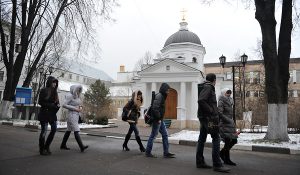
The Church of the Fedorovskaya Icon of the Virgin Mary, at the central Moscow campus of the Russian State Social University, was consecrated in 2006 after debate about religion’s place.
Source:
New York Times (HT:
The Orthodox Church) | Sophia Kishkovsky
MOSCOW — Just over 20 years ago, any religious education outside church walls was still banned in the Soviet Union. Today, churches are being built on state university campuses, theology departments have opened around Russia, and the Russian Orthodox Church has built its own educational network with international contacts and even become something of a model for the secular system.
Still, state universities struggle on many levels to integrate into the international system; the Bologna Process, an agreement streamlining higher-education standards across Europe, has upset many Russian academics who contend that it undermines the achievements of the Soviet system, where a standard specialist degree required five years of study.
But the Russian Orthodox Church, which started building its education system virtually from scratch in the post-Soviet era, has applied international standards from the outset, said Archimandrite Cyril Hovorun, deputy chairman of the church’s education committee. Speaking of the state education system, Father Hovorun said, “It is more concerned about finding compromises between the old Soviet system and the new European standards.”
At the same time, the church is proposing its vision of educational reform.
“Education is not a personal matter but a sphere of public life on which the existence of society and the state depend,” Patriarch Kirill I, the church’s leader, said in September in a speech at Voronezh State University. “It is the backbone of the existence of society, and that’s why the transfer of education exclusively into the sphere of rendering of market services is, in my view, a big mistake.”
Yulia Rehbinder, 30, who received a degree in social pedagogy this year from St. Tikhon’s Orthodox University, which was founded in Moscow in 1992 as a theological institute, said she had chosen the university because she thought it offered a more sophisticated humanities program than state universities. It received state accreditation as a university in 2004.
“In Soviet times, everything connected with Christianity, its history and culture, was purposely removed from humanitarian education,” said Ms. Rehbinder, who is now working with orphans and doing graduate research on Russian émigré teaching methods in France. “As a result, it ended up that specialists couldn’t understand the essence of works of art, of many historical events, or the motives of human actions, since a Christian worldview was alien to them.”
While the church has helped create over 30 theology faculties at secular state universities, Father Hovorun said, the state education authorities still refuse to recognize theology as a stand-alone doctoral-degree subject.
Archpriest Vladimir Vorobiev, rector of St. Tikhon’s, told Pravoslavie i mir, an Orthodox news Web site, that he objected to the state authorities’ refusal to recognize theology as a social science at the doctorate level. He asserts that some people in high levels of Russian academia are still influenced by a Soviet mind-set that cannot accept a social “science about God.”
“In Europe, they would only laugh at the phrases we have heard here about theology not being a science,” Father Vorobiev said. “To them, it’s the equivalent of saying that math is not a science.”
But while the Orthodox Church has become an increasingly powerful presence in Russia, speaking out on morality, economics, international relations, and most recently the Russian elections, critics say it has failed to adequately fill a post-Soviet ideological and moral vacuum.
The attempt to unite the church’s ideological and practical potential is illustrated vividly at the Russian State Social University. The university has more than 100,000 students on campuses across Russia and a branch in Kyrgyzstan.
Last June, its central Moscow campus, hosted an anti-abortion conference that drew American activists. Student volunteers wore anti-abortion T-shirts and distributed anti-abortion literature. The university, where smoking is banned, encourages student marriages and babies, and students are unusually polite.
The centerpiece of the campus, which used to be an institute of Marxism-Leninism, is the Church of the Fyodorovskaya Icon of the Mother of God. It was consecrated in 2006 after much debate on whether it was appropriate to build an Orthodox church in the center of the campus, said Vasily Zhukov, who is rector of the university and said all of its campuses also had prayer rooms for Muslims and other non-Orthodox students.
The construction or restoration of churches on university campuses has become such a trend that there is now an association of university churches in Russia. Yaroslav Skvortsov, chairman of the department of international journalism at the Moscow State Institute of International Relations, is co-chairman of the association.
While the study of church history is an elective, Mr. Skvortsov said he regarded it as essential for better relations among Russians and others.
“A true understanding of this Orthodox component of state diplomatic service is what will without a doubt help our future diplomats to have a proper sense of themselves,” he said.
Cooperation with the Russian Orthodox Church, Mr. Zhukov said, is a practical decision to create a moral foundation for students. “We are interested in allies,” he said, “not in religious obscurantism, not in the idealization of the church as such, not in the use of force to bring a person to church. We don’t need any of this. But we need the church as a bearer of huge knowledge.”
He added, “We are located on a spot that used to be a theoretical focal point of aggressive atheism.”
In October, Mr. Zhukov was honored for his work in academia and for the church by Metropolitan Hilarion, chairman of the Department of External Church relations, who has a doctorate from the University of Oxford and has been promoting ties between the two sectors.
Still, some Russian Orthodox leaders and commentators report growing alienation among student-age youths from the church and resentment that the religion is being forced on them. What’s more, several years ago, a number of prominent Russian scientists accused the church in an open letter of imposing ignorance and clerical rule on Russian society.
But Archpriest Vladimir Shmaliy, a theologian and vice rector of the Saints Cyril and Methodius Postgraduate and Doctoral School of the Russian Orthodox Church, said a growing dialogue between the church and academia in fields like philosophy and biology had become an example of civil society in Russia.
The church and the Higher School of Economics, Russia’s most Western-style state university, will soon sign an agreement that will include cooperation of their philosophy and history departments, said Sergey Roshchin, vice rector and professor at the school.
“Of course there are many problems in the relations between church and society, church and the state,” he said. “But this is a subject for expert dialogue that includes academia as well.”
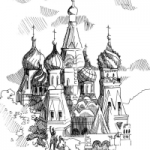
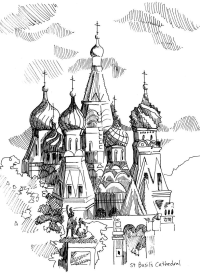 Back in October, 2011 Russian Orthodox Patriarch Kyrill said:
Back in October, 2011 Russian Orthodox Patriarch Kyrill said: 
